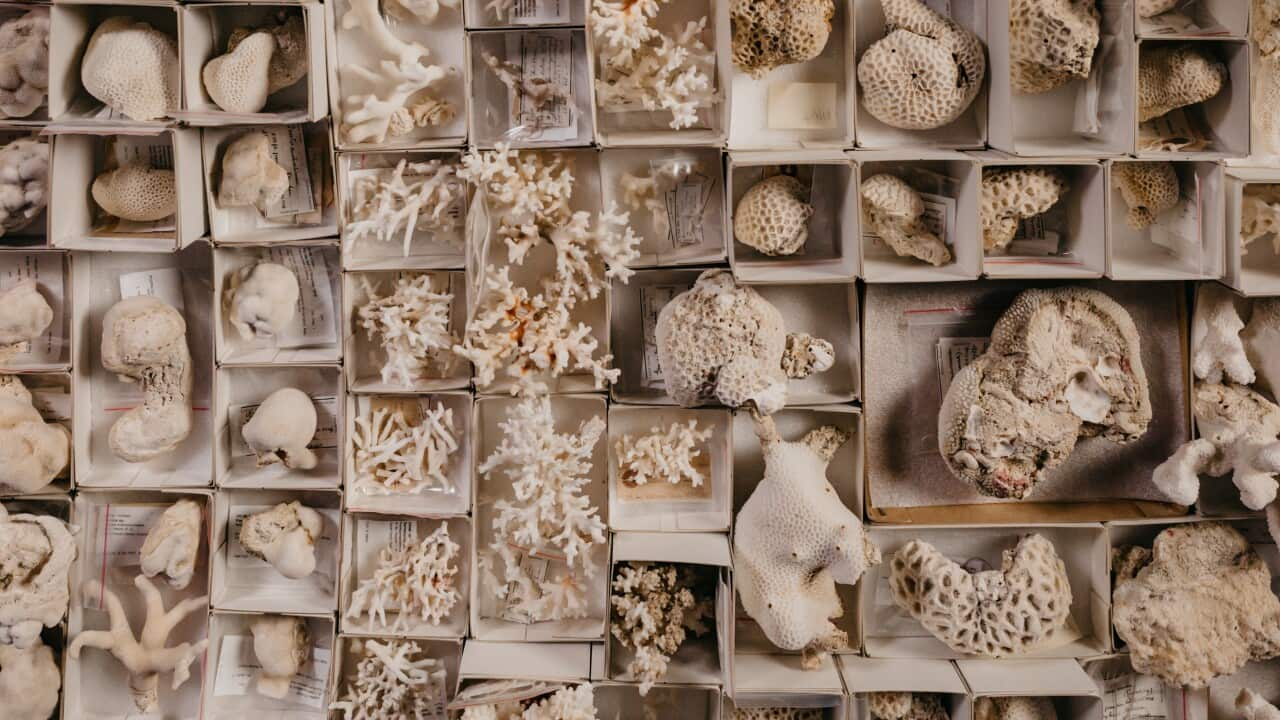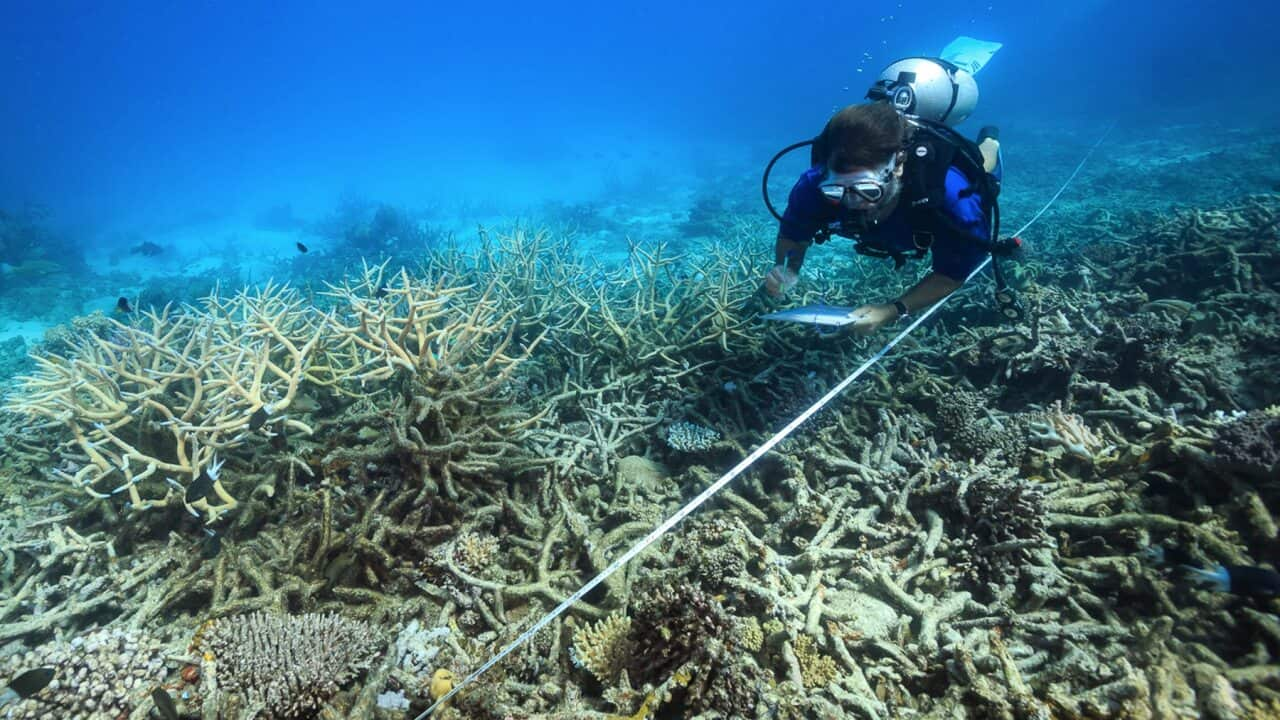Torres Strait Islanders have been reunited with part of their homelands, spirit and culture as a significant collection of coral, taken from the area more than 100 years ago, was returned to Australia from the United States.
The corals were collected from Mer, in the eastern area of the Torres Strait, by an American scientist in 1913.
The corals were identified as originating from the island by a James Cook University and Queensland Museum post-doctoral research fellow who was undertaking studies at the Smithsonian National Museum of Natural History in the US.
Coral holds profound cultural and ecological importance for the Torres Strait community, often used in ceremonial contexts, storytelling and other traditional practices.
They symbolise connection to ancestral lands and the natural environment.
"For the Meriam peoples, Wes Wes (corals) are a part of us and our sea estate," Mer Gedkem Le Corporation chairperson Falen Passi said.
"They are significant story to our identity as to the land on which we live.
"The corals spawn on the ocean floor just like our sisters and mothers give birth on land we are all related to one another to the environment that we live."
Torres Strait Regional Authority (TSRA) chairperson Napau Pedro Stephen said Elders have described the corals as a garden.
"Coral provides shelter for the fish of the sea, food source for many of the species and therefore they're one to us as being the custodian of the land," he said.
"This coral is very much part of the custodianship of the sea."

Uncle Ron Day and TSRA chair Napau Pedro Stephen inspect the collection of corals.
Napau Pedro Stephen says it's been an emotional journey to secure the coral's return.
"Kemer Kemer Meriam Nation will be reunited with part of their homeland, spirit and culture that was taken more than 100 years ago from the Torres Strait to the United States," he said.
"This recognition of the enduring connection between Torres Strait Islanders, land and sea is significant for Zenadth Kes (Torres Strait) and, more widely, Australia as a nation."
It was a moment of mixed emotions for Mr Stephen when the corals were finally back on Australian soil.
"It's a feeling of joy and sadness at the same time," he said.
"I look back at the time of the 1900s when those coral was first taken away, it's like taking something from you that's part of you."
Mr Passi said the significance of the return is about much more than having the corals physically back in Australia.
"The sea and land do not separate us from the environment," he said.
"We are spiritually connected to individuals, clans, tribal groups and as Meriam Nation.
"The return of the corals is not just about physical artefacts, but about acknowledging and honouring the cultural, spiritual, and historical rights of the Meriam people wherever you live, while promoting reconciliation and cultural preservation."
The corals will be kept at Queensland Museum in Townsville, under an agreement with Meriam Traditional Owners.














